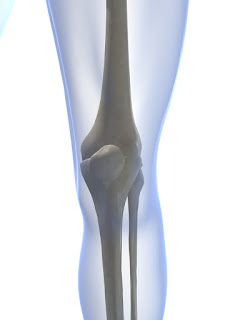Do You Know Your Knee?
Your knee is the biggest joint in your body and has the biggest job to - supporting your body and providing flexibility. The knee is the most weight-bearing joint in the human body. The knee is made up of several complex and sensitive parts.
Your knee has:
The knee connects the lower end of the thighbone (femur) to the upper end of the shinbone (tibia). Several large ligaments - strong, elastic bands of tissue that join bone to bone - make this connection, bracing and controlling the motion of the joint. The kneecap (patella) slides in a groove at the end of the thighbone; it protects the knee and gives leverage to various leg muscles. Cartilage at the ends of the leg bones helps to cushion the joint, like a shock absorber.
The Knee Joint is not blessed with sturdiness when compared to the hip, which has a ball-and-socket joint: The knobby top of the femur fits securely into a deep socket in the pelvis. The knee, meanwhile, is more like a teacup and saucer: The rounded base of the femur rests on top of the tibia.
Sprains (stretched or torn ligaments) are an especially common knee injury, and the anterior cruciate ligament (ACL) is the one most often damaged. This can happen, for example, when you change direction quickly, twist a leg or fall, slow down when running, or land from a jump. Typically, a torn ACL will be immediately disabling: you'll feel or hear a "pop," and the knee seems to "give way." Even though it might not be painful, see a doctor right away. Surgery may be necessary.
Knee pain can also come on gradually from overuse of the joint. For example, "patello-femoral syndrome," or pain caused by the kneecap being pushed against the sides of its groove, can occur if you do a lot of running. The pain, either sharp or dull, is usually felt in the front of the knee. Squatting or walking down stairs often makes it worse, and you might feel a grinding or "clicking" in the joint. A sports medicine specialist can help you to re-balance the kneecap and prevent further pain through proper training, stretching, and strengthening exercises.
TO KNOW MORE WRITE TO info@shalby.org or visit www.shalby.org
Your knee has:
- Bones
- Cartilage
- Muscles
- Ligaments
- Tendons
The knee connects the lower end of the thighbone (femur) to the upper end of the shinbone (tibia). Several large ligaments - strong, elastic bands of tissue that join bone to bone - make this connection, bracing and controlling the motion of the joint. The kneecap (patella) slides in a groove at the end of the thighbone; it protects the knee and gives leverage to various leg muscles. Cartilage at the ends of the leg bones helps to cushion the joint, like a shock absorber.
The Knee Joint is not blessed with sturdiness when compared to the hip, which has a ball-and-socket joint: The knobby top of the femur fits securely into a deep socket in the pelvis. The knee, meanwhile, is more like a teacup and saucer: The rounded base of the femur rests on top of the tibia.
Sprains (stretched or torn ligaments) are an especially common knee injury, and the anterior cruciate ligament (ACL) is the one most often damaged. This can happen, for example, when you change direction quickly, twist a leg or fall, slow down when running, or land from a jump. Typically, a torn ACL will be immediately disabling: you'll feel or hear a "pop," and the knee seems to "give way." Even though it might not be painful, see a doctor right away. Surgery may be necessary.
Knee pain can also come on gradually from overuse of the joint. For example, "patello-femoral syndrome," or pain caused by the kneecap being pushed against the sides of its groove, can occur if you do a lot of running. The pain, either sharp or dull, is usually felt in the front of the knee. Squatting or walking down stairs often makes it worse, and you might feel a grinding or "clicking" in the joint. A sports medicine specialist can help you to re-balance the kneecap and prevent further pain through proper training, stretching, and strengthening exercises.
TO KNOW MORE WRITE TO info@shalby.org or visit www.shalby.org




I'm appreciate your writing skill.Please keep on working hard.^^
ReplyDelete